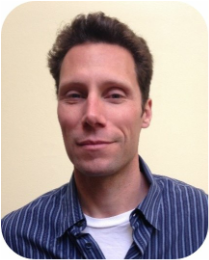
Name: Mark Thibedeau
Position: Clinical Supervisor

I’ve been in the agency for over 11 years. I started as a Mental Health Assistant at Longwood Elementary School in Hayward for 2 years. This experience and the mentorship I received from my supervisor encouraged me to pursue a MSW degree in order to become a clinician. I then came back to Seneca and served as a clinician at Elmhurst Community Prep/Alliance Academy for 8 years. Towards the end of my time as a clinician I supervised an intern which gave me the foundational experience and desire to become a full time supervisor. All of these experiences built on each other to lead me to this point in my career.
Fun Fact/Quote: I have two quotes that I live by: “Keep Showing Up” and “Discipline is the Bridge between Thought and Accomplishment”
What does your average day look like?
I get up at 4:30 to read and drink tea. When I know the day ahead is going to be fully scheduled, I review documents during this time but as much as possible I try to preserve this period for reading things that I find enriching. By 5:30 I’m out the door to exercise. I’ve followed this routine for a long time and find that starting my day practicing self-care this way prepares me physically, mentally, emotionally and spiritually for whatever challenges present themselves throughout the day. Between 6:30 and 8 AM it’s a juggling act with my wife of getting ourselves ready for work, getting our daughters ready for school and dropping them off. I try to find self-nourishment during this time by being playful with my children through all of the morning routines. When I’m right with my family, I feel better about myself, which I take with me to work.
My workday consists primarily of going to school sites to provide supervision to clinicians. This could be individual and/or group supervision as well as could be my own. I balance this part of my job with finding time to approve documents, monitor productivity, go to meetings regarding changes in our program and attend to side projects I’ve been asked to do such as conducting an ERMHS assessment, providing trainings for our school partnerships, doing focus groups with schools who are developing partnerships with All-In and/or providing direct service to clients and families. I also consult with clinicians with any questions regarding documentation, serving clients and families or crisis support. The level of need varies. Somedays there are no calls, other days there are many. If a clinician is supporting a crisis beyond normal school hours, I make sure to be available to support them until the crisis is resolved.
After work, I’m home with my family. I find this time together restorative as we reconnect after a full day of work, school, preschool, etc. Once we go through all of my daughters’ bedtime routines, I’m not far behind and usually go to bed by 9 PM.
Why do you do this work?
The people I’ve come to know through this work, whether it is clients, their families, co-workers, school partners, has had a tremendously positive impact on my life. Through sharing their stories with me, my clients and their families have given me a deeper understanding of what it means to live with pain on a daily basis and still find ways to maintain hope, have the courage to try to heal and move forward. As a result, I’m a much more open hearted person. This is a gift they have given me that I apply to my role as a supervisor as well as a husband and father.
My co-workers, past and present, have helped me maintain hope for myself during moments when I doubted my abilities to be effective in this field. These are hard questions to face and having co-workers willing to support me helps me continue to grow. They are a big reason why I’m still here. I have great admiration for the clinicians I supervise. Their courage to confront the most challenging and vulnerability inducing parts of this work in order to better serve their clients inspires me to give them my best.
Finally, as a white male in this country, this work expands my understanding of privilege and how to use it without doing harm. I find this very important in my relationships with the clinicians I supervise, in my role in the agency and as I father raising two white daughters. I also feel better equipped to contribute to courageous conversations both inside and outside of work. I’m grateful that my understanding of privilege continues to grow and I know that I wouldn’t have this understanding if not for the people I’ve met in this work.
What hope do you have for the future of All-In?
I hope that our program continues to find ways to enhance family’s involvement so that treatment is more family driven. Pretty much every reason why a client is in our program connects with some source of pain in their family relationships. As much as we focus on building our clients’ relationships with us, I believe it is of greater importance that we focus on strengthening our clients’ relationships with their family members, in addition to connecting families to the resources they need. As families heal, I envision we would see our clients achieve the behavioral, relational and academic progress that everyone desires. This is hard work but more importantly, it can be done.
 RSS Feed
RSS Feed